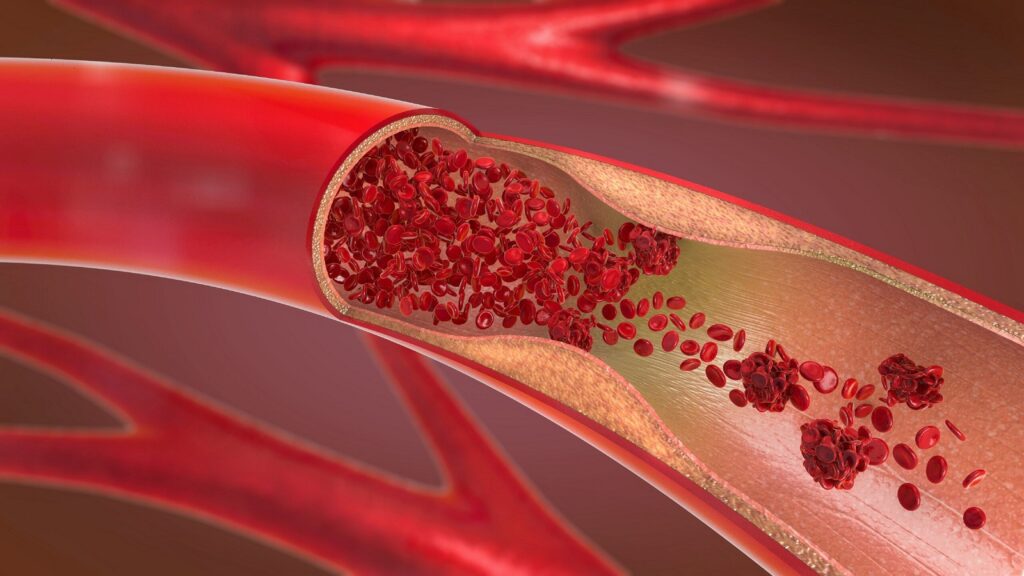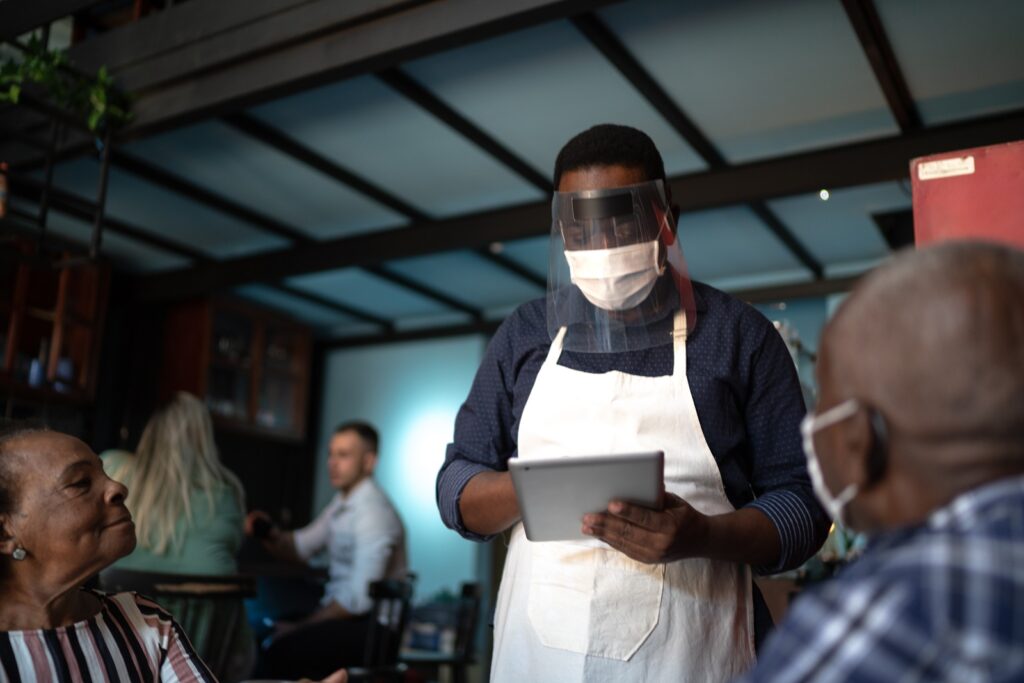Vein Care: Does Salt Affect My Veins?
Author: StrideCare Internal Team

Salt makes everything taste better. So, it stands to reason that it is a primary ingredient in many of the foods we eat. Even tasty treats you wouldn’t expect to have salt in them probably do. The truth is that there’s nothing wrong with a little salt here and there. But if your diet consists of too much of it, or you’re sensitive to salt and don’t realize it, you could be setting yourself up for some complicated health issues. This is especially true for those who already are having difficulty managing symptoms associated with poor vein health. They may even be wondering, “Is salt intake important to vein care?”
The short answer is yes. Per the American Heart Association, too much salt and sodium in your bloodstream pulls water into your blood vessels and increases the amount of blood inside them. Naturally, this leads to an increase in blood pressure, and over time, stretches blood vessel walls and creates plaque that can block blood flow.
Eating right and paying attention to how high amounts of salt affect your body can prevent the following conditions:
- Varicose veins and spider veins
- Chronic venous insufficiency
- Deep vein thrombosis
- Restless leg syndrome
- Leg ulcers and sores
- Pelvic congestion syndrome
Can Too Much Salt Damage Blood Vessels?
Our veins carry deoxygenated blood back to the heart to support many systems critical to our cardiovascular health and other functions of blood. Things are great when they’re working properly, but vein valves can weaken and struggle to pump blood as efficiently as they once did. As a result, blood can flow backward, begin to pool, and cause our veins to stretch, swell, enlarge, and even become twisted.

Poor lifestyle choices, including diets high in salt, make vein disease worse. Sodium in salt can cause water retention. As a result, blood volume increases, and blood pressure rises, both of which put pressure on your veins. Often as retained water pools in the lower extremities, ankles and legs swell, which can contribute to varicose veins. That’s why a low-sodium diet is best for proper vein care.
Does salt affect vein care? Just look at the numbers. The average salt intake for most Americans exceeds 3,200 milligrams per day when it should be less than 2,300 milligrams per day—that’s equal to about one teaspoon of table salt! As a result, 1 out of 3 U.S. adults are hypertensive, and the prevalence of hypertension increases with age. According to at least one study, consuming salty foods can impair the functioning of blood vessels and overall circulation within 30 minutes.
The problem is that it is so difficult to avoid high salt intake given today’s food choices. This is why everyone is more conscious about asking if high sodium and salt is important to regular for proper vein care. Salt is a favorite ingredient among chefs throughout the world. It is added to foods for flavor and as part of some food preservatives and additives. As a result, it can be found in all types of food and desserts, including but not limited to:
- Canned goods — Canned soup, for example, has roughly 1,000 milligrams of sodium or salt per serving.
- Processed meats — This includes ham, cold cuts, hot dogs, and sausage.
- Pizza — Pizza has high levels of salt when you consider all the cheese, sauce, dough, and processed meat.
- Salad dressing — These have a high mean and median concentration per 100 g (1,072 and 1,067 mg).
- Fast food — According to one study, fast food chains are adding 50% more salt to meals today than 35 years ago.
- Baked beans — Can contain up to 1.2 grams of salt.
- Bread — Salt in bread helps improve taste and controls fermentation, which is important in making bread.
More than 20 million Americans suffer from vein disease, and one of the culprits is poor diet and high salt. While it can be difficult to know how much salt is in the foods you eat, there are things you can do:
- Read food labels
Labels are legally required and help consumers make informed choices about which foods they buy. Read the labels when you’re at the grocery store and choose foods with low sodium and salt counts.
- Avoid too much fast food
Fast food like hamburger drive throughs and pizza delivery are popular because most of us are on the go all the time and need a quick meal. Consider meal prepping or, at a minimum, watching your portion sizes.
- Choose healthier options
Replace salty foods with ones that help maintain a healthy Body Mass Index, boost your energy so that you remain active, and promote overall blood circulation. This includes everything from fruits and vegetables to foods high in Vitamin C and E.
- Ask that no salt be added to your meal

How Do I Know If I Have a Vein Problem?
Even if you’re experiencing a cosmetic issue with your leg veins, there could be a more severe disease at play beneath the surface that could lead to complications down the line. It’s advised not to put it off and to seek treatment sooner rather than later. Take a look at these common symptoms which can indicate a vein care problem:
- Tired, heavy legs
- Throbbing or stabbing leg pain
- Swelling and achiness in the legs
- Numbness and tingling legs and/or feet
- Varicose veins
- Itching, prickling, pulling sensations in the legs
- Burning sensations in the feet
- Open sores and leg ulcers
- Cramping legs
StrideCare Wants to Help Improve Your Vein Care
Vein disease does not cure itself, and there’s no way to prevent it completely. But studies consistently show that sodium and salt affect your veins negatively. Good nutrition and eating the right foods are significant to managing symptoms associated with poor vein health. In many cases, eating right can keep things from getting worse.
If you’re doing all the right things and still have venous-related issues, give us a call. StrideCare has long been a leader in performing leading-edge procedures to treat vein disease. This includes varicose veins, spider veins, restless leg syndrome, pelvic congestion syndrome, varicoceles and more—all the while providing compassionate patient care. The vascular physicians at StrideCare are board certified diagnostic radiologists with additional fellowship training in vascular and interventional radiology.
If your veins need treatment, or you have questions on how to achieve the best vein care—especially if your diet is high in salt—the experts at StrideCare will recommend an individualized plan to help you get the best results. Request an appointment for a vein disease evaluation to discuss your options.
Before starting any new treatment or questions regarding a medical condition, always seek the advice of your doctor or other qualified health provider. This information is not a substitute for professional medical advice.
StrideCare serves the South Texas area including Katy, Houston, San Antonio, Austin, Round Rock, Bastrop, Brushy Creek, Cedar Park, Converse, Georgetown, Hutto, Kyle, League City, Leander, Marble Falls, New Braunfels, Pasadena, Pearland, Pflugerville, San Marcos, Schertz, Katy, Sugar Land, Webster, The Woodlands, Universal City and more.


